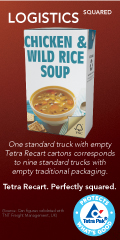
| Archives/Subscribe | www.clfp.com | Contact Us | December 3, 2013 |
Sacramento Superior Court Judge Upholds Auction of Allowances Under California Cap-and-Trade Program
On November 12, 2013, a California trial court decided that the California Air Resources Board (CARB) has the power to auction emission allowances and that such auctions do not constitute an illegal tax that violates Proposition 13. As a result, CARB will continue to hold allowance auctions. The petitioners have already announced their intention to appeal the trial court’s decision to the California Court of Appeal. Background Two primary arguments were put forth:
The Court found for CARB on both counts. The Court found that CARB’s authority to auction emission allowances "are within the broad scope of authority delegated to CARB in AB 32." The court stated that, in providing CARB with discretion regarding how to distribute allowances, the Legislature did not explicitly exclude the use of auctions. Additionally, the court took the position that legislation, enacted post-AB 32, addressing the expenditure of auction proceeds (AB 1532, SB 535, etc.), showed the Legislature understood that AB 32 authorized the use of auctions. Regarding the Petitioners’ second assertion, the court held the auction provisions do not constitute an illegal tax in violation of Proposition 13. Proposition 13 requires that "any changes in State taxes enacted for the purpose of increasing revenues" be approved by two-thirds of the state Legislature, if it is not one of the four categorical exceptions: special assessments, development fees, user fees or regulatory fees. In its analysis, the court did not find that the funds generated from the auctioning of allowances fit neatly into any one of those four categories. Despite admitting that it remained arguable whether the allowances more closely resembled a tax or a regulatory fee, the court nevertheless ruled that, overall, it was sufficient the allowance charges are more "comparable" to regulatory fees than taxes. As to the applicability of Proposition 26, the court concluded that it did not apply to AB 32 because Proposition 26 is not retroactive. Proposition 26, passed in 2010, expanded Proposition 13’s prohibition against "tax" increases without a two-thirds vote of the Legislature. Moreover, the court concluded that Proposition 26 also does not apply to the aforementioned post-AB 32 enactments because this legislation only addresses the use of the auction proceeds and does not cause any taxpayer to pay a higher tax - the trigger for application of Proposition 26. Petitioners intend to appeal the court’s ruling. The appeal will be before the 3rd District Court of Appeal. Petitioners have 60 days to file a Notice of Appeal. Article written by John Larrea, Government Affairs Director, California League of Food Processors |
|
| CALIFORNIA LEAGUE OF FOOD PROCESSORS 2485 Natomas Park Dr., Suite 550 Sacramento, CA 95833 Phone: (916) 640-8150 Fax: (916) 640-8156 www.clfp.com |
 |

